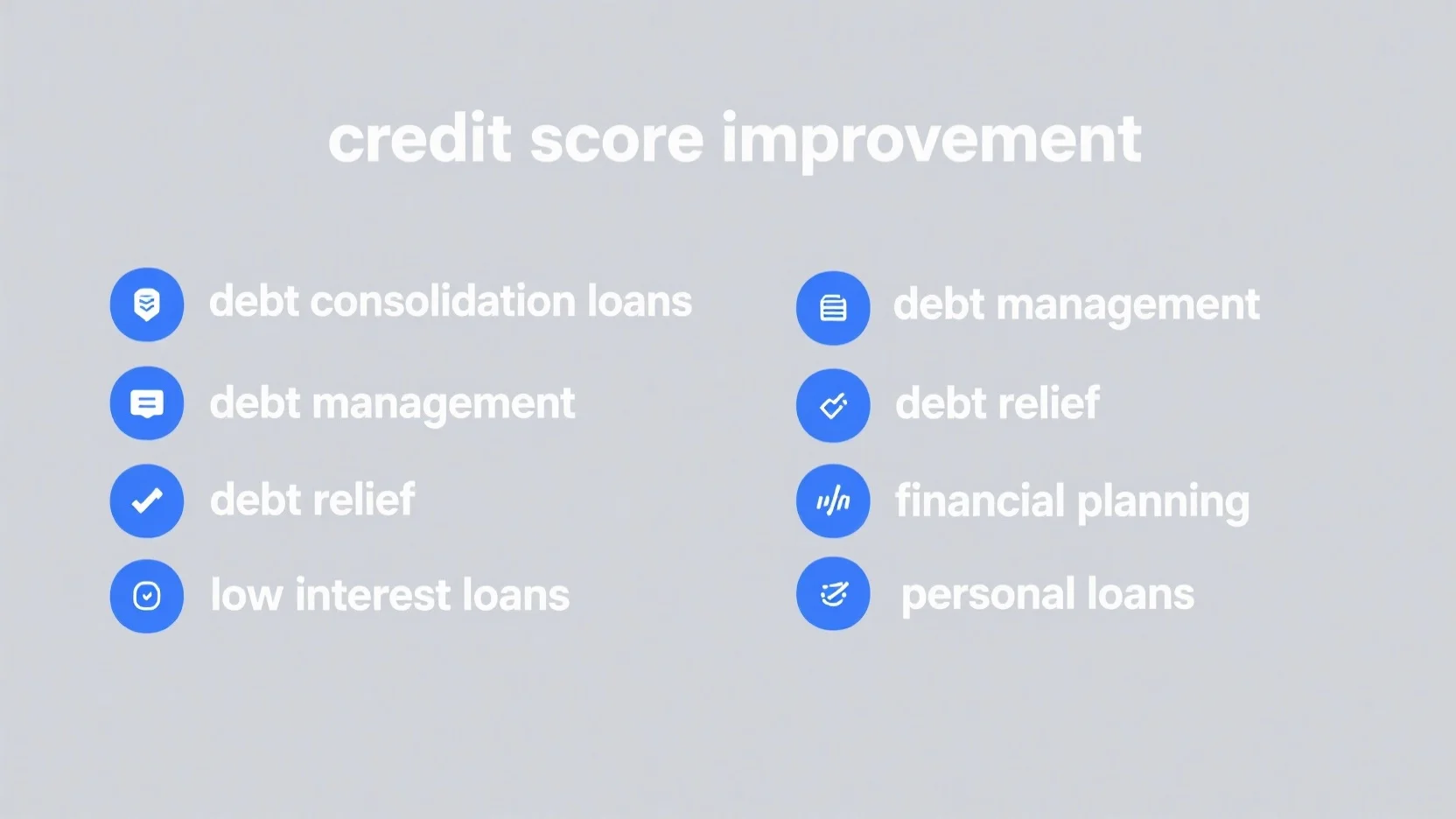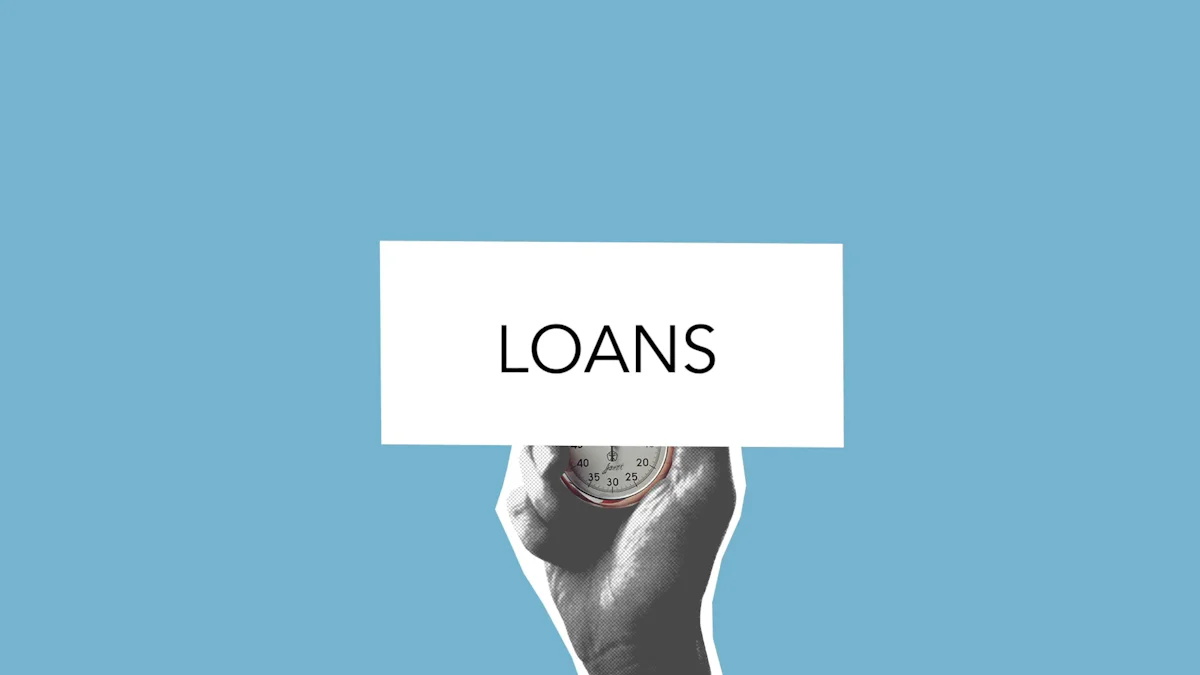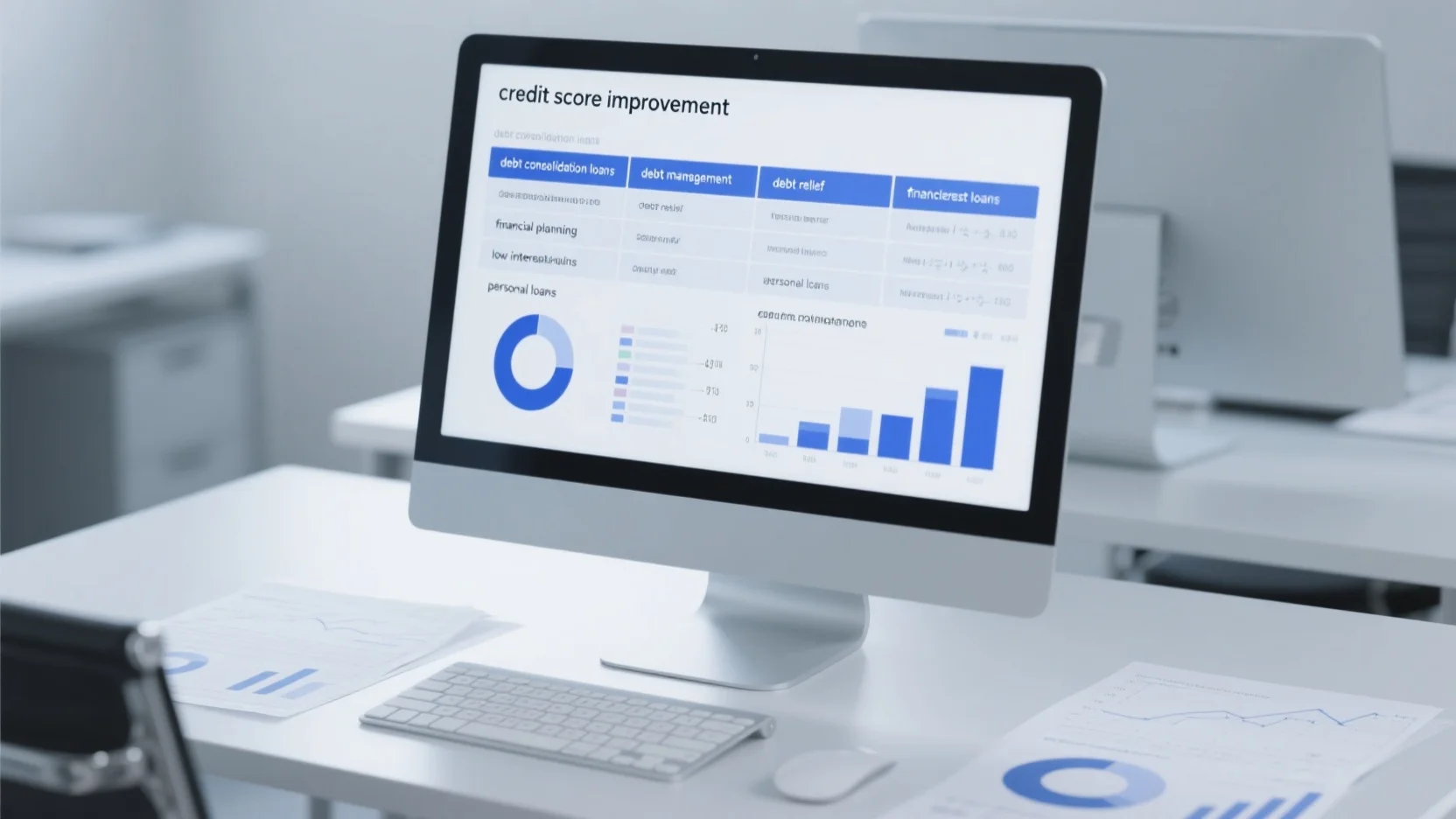
Expert-Recommended Personal Loans for Debt Consolidation

Image Source: unsplash
Managing debt effectively is crucial for maintaining financial security. High-interest debts can accumulate quickly, making payments increasingly difficult to handle. Debt consolidation is a solution that simplifies multiple debts into one manageable payment. It frequently reduces interest rates, leading to savings over time. The best personal loans for debt consolidation serve as an excellent tool for this purpose. Individuals can utilize these top personal loans to streamline their finances and regain control over their spending habits.
Key Takeaways
- Debt consolidation combines many debts into one payment. This can lower interest rates and save money over time.
- When picking a personal loan, check interest rates, fees, and repayment terms. Choose what works best for your finances.
- Get documents ready, like proof of income and ID. This helps make the loan process faster and boosts approval chances.
Best Personal Loans for Debt Consolidation in 2025

Image Source: pexels
Upstart: Great for people with bad credit
Upstart is helpful for those with poor credit scores. It looks at more than just your credit, like your job and education. To qualify, you need a credit score of 300 or higher, a U.S. address, and steady income or a job offer. Upstart is a good choice if you’re fixing your credit. You can also get your loan quickly, often in one business day.
Discover: Great for low rates and no extra fees
Discover has interest rates from 6.99% to 24.99% APR. This helps lower your debt costs. Unlike others, Discover doesn’t charge extra fees when you get the loan. This makes it a smart choice for saving money. Discover also has great customer service to help you through the process.
LendingClub: Great for different loan amounts
LendingClub offers loans from $1,000 to $40,000. This works for people with small or big debts. You can also apply with someone else to improve your chances. LendingClub’s flexibility makes it a popular option for debt consolidation.
Upgrade: Great for choosing loan terms
Upgrade lets you pick repayment plans from 24 to 84 months. Loan amounts range from $1,000 to $50,000, with APRs from 8.49% to 35.99%. This makes it a good choice for people who want manageable payments.
Reach Financial: Great for fast funding
Reach Financial is very quick, giving funds within 24 hours. It’s perfect for people who need money fast. The online tools make applying easy. Its speed and simplicity make it a trusted choice for debt consolidation.
How to Pick the Best Loan for Debt Consolidation
Looking at interest rates and loan terms
To pick a loan, start by comparing interest rates. Lower rates save money over time. Loan terms should also fit your budget. Some lenders let you repay in 2 to 7 years. Shorter terms mean higher payments but less total interest. Longer terms lower payments but cost more in interest. First, figure out how much you can pay each month.
Knowing fees and extra costs
Extra fees can make loans more expensive. Watch for these charges:
- Prepayment penalties : Fees for paying off loans early.
- Origination fees : A small percent of the loan for processing.
- Application fees : Costs for applying for the loan.
- Late fees and returned check fees : Charges for missed payments or bounced checks.
Knowing these fees helps you avoid surprises. It also helps you pick the best personal loans for debt consolidation that match your needs.
Checking what lenders need
Before applying, check what the lender requires. Most need good credit, proof of income, and a low debt-to-income (DTI) ratio. Here’s a quick guide:
| Requirement | What It Means |
|---|---|
| Credit Score | Usually needs to be fair or good. |
| Debt-to-Income Ratio (DTI) | A low DTI helps you get approved. |
| Proof of Income | You must show where your income comes from. |
| Income Sources Allowed | Includes alimony, child support, self-employment, military benefits, and more. |
Meeting these needs improves your chances of approval. It also helps you get better rates.
Comparing lenders and reading reviews
Lastly, compare lenders by reading reviews. Look for feedback on service, loan terms, and honesty. Skipping reviews or ignoring options can lead to mistakes. Reviews help you find reliable lenders with the best personal loans for debt consolidation. They also help you avoid hidden fees or bad service.
Debt Consolidation Loans Guide
What are debt consolidation loans?
A debt consolidation loan helps you manage your debts better. It combines many debts into one loan, often with lower interest. This makes it easier to pay by having just one payment. These loans are made to handle existing debts specifically. While all debt consolidation loans are personal loans, not all personal loans are for this. This type of loan is designed to help you take control of your money again.
How do they work?
Debt consolidation loans are simple to use. Here’s how to do it:
- Collect important papers like proof of income and ID.
- Fill out the loan application, often available online.
- Check the loan details and ask questions before agreeing.
- Finalize the loan and get the money. The lender might send it to you or pay your debts directly.
This process helps combine your debts into one, making payments easier to manage.
Pros and cons of debt consolidation loans
Debt consolidation loans have good and bad sides.
- Advantages :
- Lower interest rates save you money.
- One payment each month is simpler.
- Fixed plans make payments clear.
- Paying on time can improve your credit score.
- Disadvantages :
- Starting fees can cost more.
- Bad credit may lead to higher interest rates.
- Missing payments can hurt your credit score.
- Extra credit might tempt you to spend more.
Knowing these helps you decide if this loan fits your needs.
When is a debt consolidation loan a good idea?
This loan is helpful if you have many high-interest debts and steady income. It’s smart if the new loan has a lower interest rate than your current debts. But don’t use it if you might add more debt later. Think about your spending habits and ability to pay before choosing this option.
Step-by-Step Application Process
Check your money situation
Before getting a debt consolidation loan , check your finances. List all your debts, including how much you owe, interest rates, and monthly payments. This helps you see if a loan is a good idea. Add up your income and expenses to know what you can pay each month. A budget keeps you from spending more than you can afford.
Tip : Use apps or online tools to track your money. These make budgeting easier and keep you organized.
Get your documents ready
Having the right papers makes applying faster. Most lenders ask for these:
- Proof of income: Pay stubs, tax forms, or job letters.
- Proof of identity: Driver’s license, passport, or official ID.
- Proof of address: Utility bills, lease papers, or bank statements.
Getting these ready early saves time and stress when applying.
Compare loans and check pre-qualification
Look at different lenders to find the best loan. Compare interest rates, fees, and repayment terms. Many lenders let you pre-qualify, so you can see possible rates without hurting your credit score. This helps you pick the right loan for your needs.
Note : Pre-qualifying doesn’t mean you’re approved, but it’s a safe way to explore options.
Apply and finish the loan process
After choosing a lender, follow these steps:
- Apply online or in person, depending on the lender.
- Give the needed documents, like proof of income and ID.
- Read the loan agreement carefully. Ask questions if anything is unclear.
- Sign the agreement to complete the loan.
Once approved, the lender might send you the money or pay your debts directly. This makes managing payments easier and helps you stay on track financially.
Reminder : Always review the loan terms before signing. Knowing the repayment plan and fees avoids surprises later.
Alternatives to Debt Consolidation Loans
Balance transfer credit cards
Balance transfer credit cards can be a good choice. They let you move high-interest debt to a card with low or 0% interest for a limited time. This helps you save money and pay off debt faster. More of your payment goes to the main balance, not interest. Combining debts into one payment also makes things simpler. Some cards even give rewards like cash back.
But there are risks with these cards. Many charge a fee of 3% to 5% for transfers. If you don’t pay off the balance in time, the interest rate can go up a lot. You might also feel tempted to use the paid-off cards again, which adds more debt. To make this work, pay off the balance during the low-interest period and avoid new spending.
Home equity loans or lines of credit
Home equity loans or HELOCs let you borrow money using your home’s value. These loans often have lower interest rates than credit cards or personal loans. They are a good option if you have a lot of home equity and a solid plan to repay. Fixed rates and steady payments make budgeting easier.
However, using your home as a guarantee is risky. If you can’t pay, you might lose your home. It’s important to make sure you can afford the payments before choosing this option. This works best for people with a strong financial plan and who won’t take on more debt.
Debt management plans
Debt management plans (DMPs) help you handle debt in an organized way. A credit counselor works with you to lower interest rates and combine payments into one monthly bill. These plans can make it easier to pay off debt and reduce stress. They also give you a clear path to becoming debt-free.
But DMPs need commitment. You must follow the plan and avoid new debt while paying it off. Some agencies charge fees for their help. It’s important to find a trustworthy agency and check that their fees are fair before starting a plan.
Negotiating directly with creditors
Talking directly to creditors can help you manage debt. Be honest about your money problems to get better deals. First, figure out how much you can pay. Offering a lump sum or mentioning bankruptcy might make creditors lower their demands. Try to settle for 30% to 50% of what you owe.
When negotiating, always stay truthful and consistent. Stick to your plan and focus on reducing as much debt as possible. This takes time and effort, but it can save you money and improve your finances.
Personal loans help manage debt and ease money worries. They often have lower interest rates and clear payment plans. This makes them a smart way to combine debts. Look closely at lenders and think about your money goals. Start your journey to financial freedom by talking to an expert or checking the choices listed earlier.
FAQ
What credit score is needed for a debt consolidation loan?
Most lenders want a credit score of 600 or higher. Some, like Upstart, accept lower scores if other factors are strong.
Can I use a debt consolidation loan for other things?
Yes, but it’s best to use it only for debts. This helps you focus on paying off what you owe and avoids new debt.
How fast can I get approved for a loan?
Approval times depend on the lender. Some, like Reach Financial, approve loans the same day. Others might take a few business days to finish.
